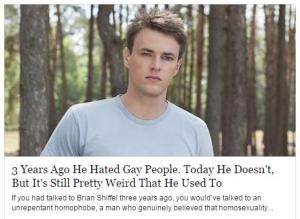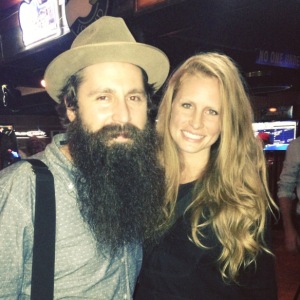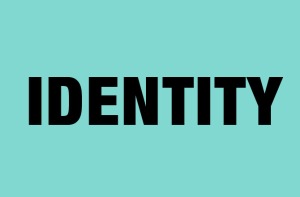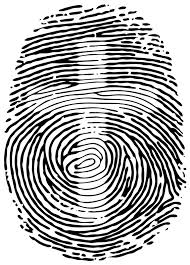Up and Coming: Don’t Miss!
A ‘sister’ site to the most infamous Onion, ClickHole’s purpose is ‘to mock content shared on media sites.’ It is a satirical website that, according to its senior editor, Jermaine Alfonso, is “The Onion’s response to click-bait content.”[1] Clickbait is the phenomenon of web content explicitly designed to generate online advertising revenue. The success of the clickbait is in the headline and the image. An example might be, for the sake of an argument: “Puppies Meet for the First Time. Their Reaction…Priceless!” The image: two of the most adorable puppies imaginable. Another may be: “Best Foods for Losing Weight. You Won’t Believe What Made Number One!” The image: someone wolfing down chocolate like the world is ending. The key is generating a sense of impending sensationalism. In an age of digital immediacy, we must be informed instantaneously or else it doesn’t matter. But if some multimedia strategist is able to feed our dread for disinformation with a simple plug of anticipation, then they will have won someone’s advertising dollars.
For being a satirical click-bait website, ClickHole eerily gets it when it comes to several issues. Consider this recent post:
The part of the article that really spoke out to me was this:
“When my cousin John told me he was gay, it was like a light turned on in my brain, and I realized that just because someone is gay doesn’t mean they’re a bad person,” said Brian. But isn’t it kind of weird that he had to personally know a gay person in order to realize that writing off a whole group of people based on their having a sexual orientation different from his own is sort of a bad idea?
Poor Brian Shiffel, being thrown under the proverbial clickbait bus; his story made sensational in only 107 characters. Of course he’s not real, but what if he was? In fact, he is very much real; he is an amalgamation of many persons like him. Sure, they may not have had as strong of feelings against gay people as Brian did, but check out the story of ‘up-and-coming’ Pastor Adam Phillips hither and thither. To the soothing background tune of some ambient guitar, his face softly lit, he tells his story:
After much digging into the Bible, he became fully convinced that inclusion of LGBT ‘brothers and sisters’ was consistent with “the whole arc of Scripture” and “where the Holy Spirit was guiding the church today.” In spite of his epiphanies, the Evangelical Covenant Church voted to cut his church off from its denomination. Adam continues to serve as a pastor of his church to “push forward in faith.”
Where it was a cousin, a close family member, who helped Brian come to a different conclusion concerning the inherent worth and value of LGBT persons, it was specifically Christians who “happen to be gay” that forced the conversion within Adam. However, in concert with ClickHole, I pose to Adam:
“Isn’t it kind of weird that you had to personally know a Christian person who happened to be gay in order to realize that writing off a whole group of people based on their having a sexual orientation different from your own is sort of a bad idea?”
No Exceptions
This is demonstrative of a tremendous frustration I have with both Christian allies as well as LGBT folk who profess to be Christian. In the dialogues concerning the relationship between faith and sexuality, many take the stand that one’s faith takes priority over all other forms of identity. Because of this hierarchy, it is faith-as-ultimate that determines the contours of all other categories of identity: race, gender, sexuality, disability, et cetera. I am convinced that while personal faith is a profound category of identity, it exists intersectionally with other categories of identity—not superior to them. One’s sexuality has as much influence on one’s faith as one’s faith has influence on one’s sexuality. This frees up LGBT folk who happen to be Christian to explore how their faith may be different from their straight ‘brothers and sisters.’
Furthermore, LGBT folk who happen to be Christian need not be held victim to the whims of church councils and denominations who have to wrestle with the question of inclusion. A legacy of Protestantism is that one’s faith is not determined by one’s membership in a church community but by justification by faith alone. Protestantism should shine with this tenet, but it seems to do the exact opposite. I have and will argue in future writings on how the experience of coming to know God and the experience of coming out are so similar that in many ways they must be correlated and integrated. Churches must form around the holy work of the LGBT Christian themselves; LGBT Christians need not compromise anything about themselves and their experience to be persons of faith.
In a similar fashion, LGBT folk who happen to be Christian who want to see a reformation of their churches and denominations need not play by their rules. Where churches are making the move towards greater inclusion of LGBT folk, churches must also critically examine patterns of heteronormativity that still, even if implicitly, create barriers for LGBT folk and their authentic experience of faith. In a previous post, I broached the subject of celibacy among LGBT Christians as a potential example of these patterns. Any theology that explicitly or implicitly compromises the inherent worth and dignity (a very theological point itself) ought to be challenged, rejected, or converted.
An Exception
Ah yes, conversion. In all of these conversations, from Brian Shiffel or Adam Phillips, we must be reminded of the element of conversion and repentance. What better story of conversion than that of Saul of Tarsus.
With the martyrdom of Stephen, a great persecution began against those who called themselves Christians in Jerusalem. Saul was among those persecutors. On route to Damascus to persecute more Christians, a great light from heaven flashed and down fell Saul. A voice said “Saul, Saul, why are you persecuting me?” Saul replied “Who are you Lord?” The voice replied “I am Jesus whom you are persecuting!” Struck blind, Saul arrived in Damascus where a man named Ananias was expecting him. Having been told by God that Saul was approaching, God instructed Ananias to place his hands on him so he may see again. While Ananias feared Saul for his notoriety, God still instructed Ananias to go, saying “Go, because he is my chosen instrument to carry my name before Gentiles and kings and the people of Israel.” Upon the meeting of Ananias and Saul, the latter’s eyesight was returned, and he became a disciple of Jesus, proclaiming that Jesus is the Christ.
 Now, I pose the question to Saul:
Now, I pose the question to Saul:
“Isn’t it kind of weird that you had to personally encounter Jesus in order to realize that writing off a whole group of people based on their having a faith different from your own is sort of a bad idea?”
Troubling, no? Saul still had a ferocious time proving his worth to those who were skeptical of his change, and perhaps I am doing that to Brian and Adam. Is it warranted? Upon conversion and repentance, are people resolved from the memory of their past injustices? Again, streams of Christianity would say yes, wherein both God and humanity must forget the state of the pre-convert in light of their conversion. Are the doctrines of atonement and salvation really get-out-of-jail-free cards, from God’s judgment, humanity’s judgment, and our judgment?
Renowned theologians Jürgen Moltmann et al. would not say so. With God’s preferential option for the poor and the oppressed, God still judges the oppressor in spite of forgiveness of sins. However, atonement is the freeing “the oppressors and the oppressed from oppression and to open up to them the situation of free, sympathetic humanity.”[2] The oppressed and the oppressor both need a Road to Damascus experience wherein their eyes are opened to the freedom and opportunity in God. The invitation for the oppressor is to hear the voice of the oppressed and to recognize them as human, uniquely and inherently celebrated. The invitation for the oppressed is to recognize the oppressor as an ally through God’s work of a new being and a new reality in forgiveness. The story of oppression is not forgotten, but it is transformed as it becomes a new story of redemption.
A free, sympathetic humanity is open to all, not just straight Christians or gay Christians. In atonement, the world is opened to all, where we then recognize the inherent worth and dignity of all creation. The memory of rejection—Brian and Adam’s story—will still be remembered, but the cycle of oppression is broken, and the invitation to a queer narrative of faith is opened. In this, a true sympathy for different faiths—straight, gay, lesbian, bisexual, trans, queer—are freely and sympathetically enjoyed by all. You won’t believe what happens next!
[1] http://splitsider.com/2014/06/inside-the-onions-new-click-bait-parody-clickhole-com/
[2] Moltmann, The Crucified God, some page.

















